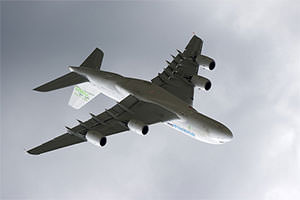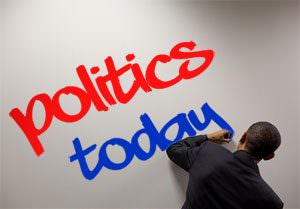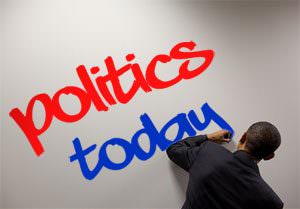Arab Awakening and a Failed European Aeronautics Merger
From the beginning of the Arab Awakening ("Arab Springtime," as it was, but alas two springtimes have already passed), my opinion has been to stay out of these events, as far as possible, and certainly not to attempt to control them.
It has been a bad week for American policymakers concerned with the Middle East (as for the Middle Easterners themselves), and it will be important to see what Mitt Romney and Barack Obama make of it in their second debate (which occurs after this writing).
From the beginning of the Arab Awakening (“Arab Springtime,” as it was, but alas two springtimes have already passed), my opinion has been to stay out of these events, as far as possible, and certainly not to attempt to control them. To do so has seemed certain to fail and leave the Western countries suffering serious collateral damage.
Then France, on the urging of a fashionable intellectual, Bernard-Henri Levy, and an impulsive President Nicolas Sarkozy, drew Britain, NATO and the U.S. into the revolt in Libya (the United States reluctantly “leading from behind” in an unhappy and inaccurately evasive statement that the Republicans now hold against President Obama). The situation worked for a time but slipped out of anyone’s control with the attack on the American ambassador and his team in September, with President Obama naturally held responsible by the Republicans.
Now the Pentagon plans an American trained (and presumably led) commando force to control a country currently in a highly uncontrollable condition (the Army’s Africa Command has been looking for work). Once again, the U.S. steps down the road from which there are few turnings.
Syria is a civil war, being fought in the shadows of a Shia-Sunni religious confrontation, and an Iranian-Saudi/Qatari regional struggle. The U.S. reportedly is involved in arming the Sunni rebels, among whom Islamic fundamentalists are an increasing presence (a familiar story, to those who remember the mujahedeen in Afghanistan). Israel continues its undercover war against Iran. I find it hard to believe that the United States, or almost anyone else, can benefit from all this, and the U.N.’s mediation is an only faintly visible recourse.
On an entirely different subject about which I recently wrote, the EADS-BAE Systems merger that has recently provoked so much excitement in certain circles, I find it very interesting that the German government has killed the deal, not the nationalistic French.
I would imagine that the Socialist government of Francois Hollande, which has demonstrated a disturbing level of amateurism during its first few months in office, simply did not understand the implications of handing off EADS to a merger with an Anglo-American consortium in serious trouble.
EADS is a prosperous all-European company with a huge commercial order book, whose core component is Airbus, that is the creation of the French and German governments and that was initially underwritten by large European taxpayer loans. In the merger, the French and German governments would have received as reward for having created the company a “golden share” each, good for a veto to the company’s being sold on to some other company. Possibly Boeing?
BAE went to the U.S. in 2005 when British arms orders were declining and BAE saw itself becoming an American company profiting from the big sales its executives expected from a Pentagon seemingly on the way to war with the world.
Instead they were fenced off from secret high-technology contracts, on which only American citizens were allowed to work, and were disappointed by others. BAE looked vainly for a merger with American companies. In September 2008, its president, Ian King, even proposed making an American head of the company — to humor the Yankees. The board in London vetoed that. This was, after all, British Aviation, the surviving legatee of all the companies that contributed to Britain’s glorious pioneering history in aviation.
In 2011-’12, Ian King and Tom Enders of EADS had the idea of EADS-BAE merger. They would refuse government interference (except for the required “golden share,” for whatever that was worth), and Mr. Enders would become the top aerospace executive in the whole world, and Mr. King would be the celebrated Scotsman who had saved BAE Systems from its American fiasco and handed it off to the Europeans at a nice profit.
At that point, BAE was on bad terms with its principal investor, the Invesco fund managers (holding 13 percent), and Reuters reports that other investors were upset. Price earnings were “low both historically and relative to peers.” The stock had underperformed the Financial Times index (FTSE) for three years. The company faced flat revenues “at best” according to Christopher Hughes of Reuters.
EADS has a treasury of 6 billion euros. It wanted to expand to acquire more defense work and has a desirable (if reluctant) candidate at home, the French military electronics group Thales, now under the operational direction of Dassault, the French fighter-bomber and executive jet manufacturer –which currently has a deal in the works to re-equip the Indian Air Force. EADS’s civil aviation and space-launcher units, Airbus and Ariane, are both world leaders. Prospective world losers in the aviation business right now appear to be (as Le Monde suggests) Ian King and Dick Olver (BAE chairman) — and one might even suggest, Tom Enders.
Visit William Pfaff’s website for more on his latest book, “The Irony of Manifest Destiny: The Tragedy of America’s Foreign Policy” (Walker & Co., $25), at www.williampfaff.com.
© 2012 Tribune Media Services, Inc.
Your support matters…Independent journalism is under threat and overshadowed by heavily funded mainstream media.
You can help level the playing field. Become a member.
Your tax-deductible contribution keeps us digging beneath the headlines to give you thought-provoking, investigative reporting and analysis that unearths what's really happening- without compromise.
Give today to support our courageous, independent journalists.






You need to be a supporter to comment.
There are currently no responses to this article.
Be the first to respond.